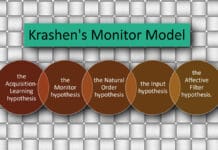An adverb is a modifying part of speech. It answers the question when, where, how, how much, how long, or how often.
- The elections are coming soon.
- They only shopped locally.
- They are happily married.
An adverb describes verbs, other adverbs, adjectives, and phrases.
- Verb- The cat climbed quickly up the tree. (quickly describes how the cat climbed)
- Adverb- Mike worked very carefully on his paper. (very shows how carefully he worked)
- Adjective- She is nearly ready to go. (nearly tells to what extent she is ready)
Most adverbs are formed by adding -ly to an adjective. If the adjective already ends in -y, the -y usually changes to -i.
- bold / boldly
- solid / solidly
- interesting / interestingly
- heavy / heavily
- unnecessary / unnecessarily
There are, however, many common adverbs that do not end in -ly, such as again, also, just, never, often, soon, today, too, very, and well.
There are a few different kinds of adverbs. The words when, where, why, and how are called interrogative adverbs when they begin a question.
- When did the event occur?
- Where is the proof?
- Why was he so late?
- How did they get here?
The relative adverbs—where, when, and why (how is sometimes included as well)—introduce subordinate clauses (also called dependent clauses), which are clauses that do not form simple sentences by themselves.
- This is the house where I grew up.
- They go to bed when they want to.
- She wondered why the door was open.
When an adverb modifies a whole sentence or clause, it is called a sentence adverb. Words such as fortunately, frankly, hopefully, and luckily are generally used as sentence adverbs and usually express the speaker’s feelings about the content of the sentence. Such adverbs normally come at the beginning of a sentence, but may also come in the middle or at the end.
- Unfortunately, Friday will be cloudy.
- Friday, unfortunately, will be cloudy.
- Friday will be cloudy, unfortunately.
Adverbs of Manner
Describe how something happens. Where there are two or more verbs in a sentence, adverb placement affects the meaning.
- carefully
- correctly
- eagerly
- easily
- fast
- loudly
- patiently
- quickly
- quietly
- well
She decided to write her paper. (no adverbs)
She quickly decided to write her paper. (her decision was quick)
She decided to write her paper quickly. (her writing was quick)
Adverbs of Place
Describe where something happens. Most adverbs of place are also used as prepositions.
- abroad
- anywhere
- downstairs
- here
- home
- in
- nowhere
- out
- outside
- somewhere
- there
- underground
- upstairs
I wanted to go upstairs.
She has lived in the city since June. (in the city prepositional phrase)
Adverbs of Purpose
Describe why something happens.
- so
- so that
- to
- in order to
- because
- since
- accidentally
- intentionally
- purposely
Jenny walks carefully to avoid falling.
Bob accidentally broke the vase.
Adverbs of Frequency
Describe how often something happens.
- always
- every
- never
- often
- rarely
- seldom
- sometimes
- usually
Mathew gets a ride from her brother every day.
The fish usually swims near the top of the tank.
Adverbs of Time
Describe when something happens.
- after
- already
- during
- finally
- just
- last
- later
- next
- now
- recently
- soon
- then
- tomorrow
- when
- while
- yesterday
He came home before dark.
It will be too dark to play outside soon.
Jessy finished her supper first.
Ancy left school early.
Adverbs of Completeness
In a complete manner.
- everywhere
- here
- there
Ernest Hemingway is often held up as an example of a great writer who detested adverbs and advised other writers to avoid them. In reality, it’s impossible to avoid adverbs altogether. Sometimes we need them, and all writers (even Hemingway) use them occasionally. The trick is to avoid unnecessary adverbs. When your verb or adjective doesn’t seem powerful or precise enough, instead of reaching for an adverb to add more colour, try reaching for a stronger verb or adjective instead. Most of the time, you’ll come up with a better word and your writing will be stronger for it.
Common Adverbs
| abnormally | hopelessly | righteously |
| absentmindedly | hourly | rightfully |
| accidentally | hungrily | rigidly |
| acidly | immediately | roughly |
| actually | innocently | rudely |
| adventurously | inquisitively | sadly |
| afterwards | instantly | safely |
| almost | intensely | scarcely |
| always | intently | scarily |
| angrily | interestingly | searchingly |
| annually | inwardly | sedately |
| anxiously | irritably | seemingly |
| arrogantly | jaggedly | seldom |
| awkwardly | jealously | selfishly |
| badly | joshingly | separately |
| bashfully | joyfully | seriously |
| beautifully | joyously | shakily |
| bitterly | jovially | sharply |
| bleakly | jubilantly | sheepishly |
| blindly | judgementally | shrilly |
| blissfully | justly | shyly |
| boastfully | keenly | silently |
| boldly | kiddingly | sleepily |
| bravely | kindheartedly | slowly |
| briefly | kindly | smoothly |
| brightly | kissingly | softly |
| briskly | knavishly | solemnly |
| broadly | knottily | solidly |
| busily | knowingly | sometimes |
| calmly | knowledgeably | soon |
| carefully | kookily | speedily |
| carelessly | lazily | stealthily |
| cautiously | less | sternly |
| certainly | lightly | strictly |
| cheerfully | likely | successfully |
| clearly | limply | suddenly |
| cleverly | lively | surprisingly |
| closely | loftily | suspiciously |
| coaxingly | longingly | sweetly |
| colorfully | loosely | swiftly |
| commonly | lovingly | sympathetically |
| continually | loudly | tenderly |
| coolly | loyally | tensely |
| correctly | madly | terribly |
| courageously | majestically | thankfully |
| crossly | meaningfully | thoroughly |
| cruelly | mechanically | thoughtfully |
| curiously | merrily | tightly |
| daily | miserably | tomorrow |
| daintily | mockingly | too |
| dearly | monthly | tremendously |
| deceivingly | more | triumphantly |
| delightfully | mortally | truly |
| deeply | mostly | truthfully |
| defiantly | mysteriously | ultimately |
| deliberately | naturally | unabashedly |
| delightfully | nearly | unaccountably |
| diligently | neatly | unbearably |
| dimly | needily | unethically |
| doubtfully | nervously | unexpectedly |
| dreamily | never | unfortunately |
| easily | nicely | unimpressively |
| elegantly | noisily | unnaturally |
| energetically | not | unnecessarily |
| enormously | obediently | utterly |
| enthusiastically | obnoxiously | upbeat |
| equally | oddly | upliftingly |
| especially | offensively | upright |
| even | officially | upside-down |
| evenly | often | upward |
| eventually | only | upwardly |
| exactly | openly | urgently |
| excitedly | optimistically | usefully |
| extremely | overconfidently | uselessly |
| fairly | painfully | usually |
| faithfully | partially | utterly |
| famously | patiently | vacantly |
| far | perfectly | vaguely |
| fast | physically | vainly |
| fatally | playfully | valiantly |
| ferociously | politely | vastly |
| fervently | poorly | verbally |
| fiercely | positively | very |
| fondly | potentially | viciously |
| foolishly | powerfully | victoriously |
| fortunately | promptly | violently |
| frankly | properly | vivaciously |
| frantically | punctually | voluntarily |
| freely | quaintly | warmly |
| frenetically | quarrelsomely | weakly |
| frightfully | queasily | wearily |
| fully | queerly | well |
| furiously | questionably | wetly |
| generally | questioningly | wholly |
| generously | quicker | wildly |
| gently | quickly | willfully |
| gladly | quietly | wisely |
| gleefully | quirkily | woefully |
| gracefully | quizzically | wonderfully |
| gratefully | rapidly | worriedly |
| greatly | rarely | wrongly |
| greedily | readily | yawningly |
| happily | really | yearly |
| hastily | reassuringly | yearningly |
| healthily | recklessly | yesterday |
| heavily | regularly | yieldingly |
| helpfully | reluctantly | youthfully |
| helplessly | repeatedly | zealously |
| highly | reproachfully | zestfully |
| honestly | restfully | zestily |






























